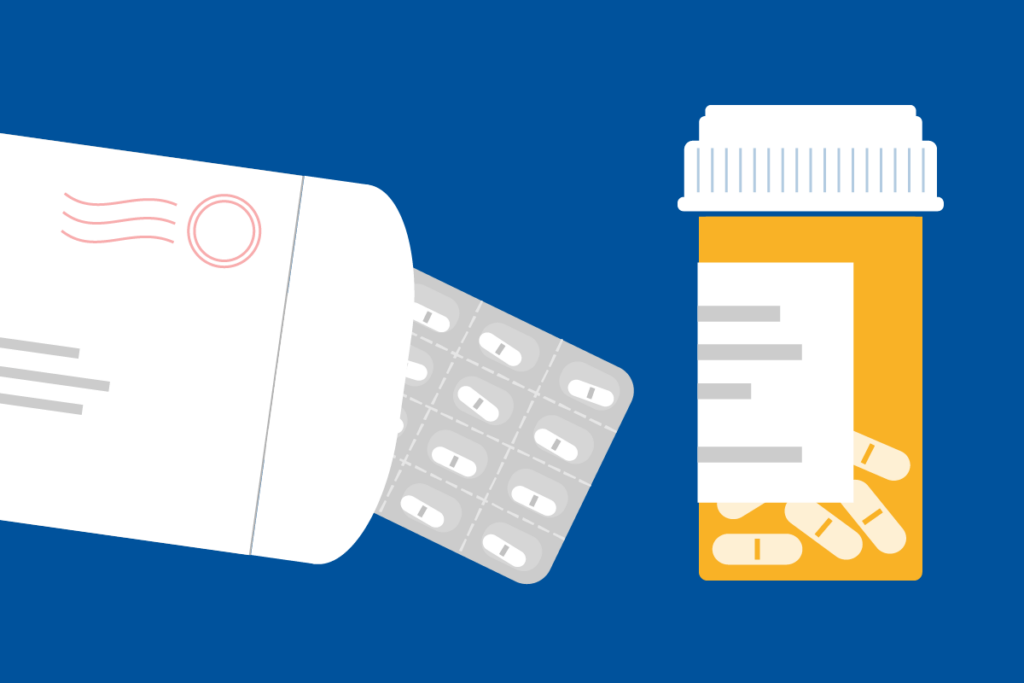Some veterans are across the country are making contingency plans in case they run out of medications before they arrive in the mail as U.S. Postal Service delays mount.
Melissa Ned, a U.S. Navy veteran, has been waiting about three weeks for her two leukemia medications to arrive. She can’t just go to her nearest Department of Veterans Affairs hospital to get them — it’s two hours away and its pharmacy has been mostly closed during the pandemic.
“I gave up calling the VA pharmacy since COVID-19,” she said. “Nobody answered and I automatically got disconnected.
Vietnam Army veteran John Williams said he went without his heart medication and a prescription painkiller — for injuries he sustained in service — for nearly four weeks. He still hasn’t received any of his medications in the mail, but his daughter-in-law, who is also a postal worker and a veteran, drove him to his local VA to pick up replacements.
“The VA said they’d rush me a new supply by mail,” Williams said. “But that never arrived either. Nothing like this has ever happened before … I think what would have happened if I didn’t have someone to help me get there. Some people could be really hurt.”
Department of Veterans Affairs prescriptions mailed by the U.S. Postal Service in the past year have seen delays of nearly 25%, the federal agency recently told a national veteran service organization.
Disabled American Veterans National Commander Stephen “Butch” Whitehead was the first VSO leader to speak out about the USPS issues which have caused delays for mail-order prescription issues.
“VA has now confirmed to us that the United States Postal Service (USPS), which is responsible for delivering about 90% of all VA mail-order prescriptions, has indeed been delayed in delivering these critical medications by an average of almost 25% over the past year, with many locations experiencing much more significant delays,” Whitehead said Monday.
To help mitigate those delays, VA told Congress and DAV previously that it was forced to switch to alternative delivery services, such as UPS and FedEx, in several areas across the country, among other measures, to expedite shipping for medications.
“It is simply unacceptable that America’s veterans, particularly those who were injured or made ill in defense of this country, should face the prospect of not receiving necessary medications in a timely manner considering such delays can be the difference between health and sickness, or even worse,” Whitehead said, adding that veterans also depend on USPS to deliver benefits decisions, hearing notifications and other messages from VA, where timeliness matters.
And with many veterans who live in rural or remote areas, or who have trouble getting to a VA medical center or clinic, USPS is even more important.
Whitehead and DAV called on the White House and Congress to take immediate action to “ensure that the USPS has all the funding necessary” and to continue deliveries without delays or interruptions.
“Whatever the long-term future of the USPS may be, reducing or delaying mail operations during a national health emergency is not an option,” Whitehead said. “Our nation’s veterans, particularly those disabled by their service, deserve nothing less than high-quality and timely health care and benefits no matter their geographic location, and for the foreseeable future that requires a fully functioning United States Postal Service.”
Capitol Hill lawmakers — mostly Democrats, including top Veterans Affairs committee leaders — last week demanded USPS leadership to overturn recent policy changes that may have caused the delays. Now, new Postmaster General, Louis DeJoy has agreed to appear before Congress Aug. 24.
Connecting Vets first reported the delays, according to dozens of veterans, VA pharmacy staff and pharmaceutical company leaders, on Aug. 5. By Aug. 17, more than 200 veterans and caregivers, along with dozens of VA employees, pharmaceutical leaders and USPS staff confirmed that Postal Service issues are delaying veterans’ medications, sometimes by weeks.
The vast majority of VA prescriptions are fulfilled by mail from a group of seven massive, automated hub pharmacies across the country, the Consolidated Mail Outpatient Pharmacy (CMOP) system. That centralized pharmacy system processes about 80% to 90% of all VA outpatient prescriptions and almost all (90%) of those are shipped through USPS. The other prescriptions are typically filled at local VA medical facilities.
VA’s mail-order pharmacy system processes 120 million prescriptions per year, nearly half a million prescriptions daily and each working day, more than 330,000 veterans receive a package of prescriptions in the mail. Veterans who live further from VA medical facilities, especially in rural and remote areas of the country, often depend on mail-order prescriptions.
USPS is now headed by DeJoy, who took over on June 15 after being appointed by the president. DeJoy, a top donor to President Donald Trump, issued a memo during his first month leading USPS which mentioned the Post Office’s continued financial struggles and announced new policies, including that the Post Office would now accept delayed mail to save costs.
“One aspect of these changes that may be difficult for employees is that — temporarily — we may see mail left behind or mail on the workroom floor or docks (in Processing and Distribution Centers), which is not typical,” the memo reads, adding that USPS should avoid overtime payments caused by “late and extra trips.”

The memo, first reported by The Washington Post, directed employees to leave mail behind at distribution centers if it would delay carriers on their routes. USPS warned customers months before DeJoy took over that the coronavirus pandemic could cause mail delays. USPS is one of the country’s largest veteran employers, with nearly 100,000 veterans on staff (about 15% of the total USPS workforce). About 60% of the veterans working at USPS have a disability rating, the agency estimates.
Veterans and their caregivers told Connecting Vets they’ve faced wait times that have doubled, tripled or worse. Some reported wait times as long as three weeks or more for prescriptions that previously took a few days.
VA’s website says prescriptions “usually arrive within three to five days” of being ordered or even an average of “60 hours from filling to delivery,” and advises veterans to request refills at least 10 days in advance of running out. That estimate appeared consistent with the normal wait times veterans described to Connecting Vets, and some vets said they have yet to see significant delays.
VA told Congress it plans to mitigate the medication delays by sending prescriptions earlier, and that delays may be worse in some areas, including New York, New Jersey, Arizona and Michigan. In those areas, VA is converting its deliveries from USPS to UPS 2nd Day Air or FedEx temporarily.
VA also is setting up a new USPS code to help the Postal Service identify and prioritize veteran prescription deliveries. That code is already in place for first-class and priority mail packages, and the two agencies are working to expand it to other mail categories.
VA Press Secretary Christina Noel told Connecting Vets on Monday that “VA always encourages veterans to order routine prescriptions in advance” and the department “continually monitors prescription delivery times throughout the country and uses a variety of methods to ensure timely delivery, including in-person pharmacies, USPS and commercial carriers.”
Noel said VA prescriptions delivered by USPS “are averaging less than three days delivery time, and more than 95% of VA prescriptions delivered by UPS next-day service have been on time,” referring all other questions to USPS.
